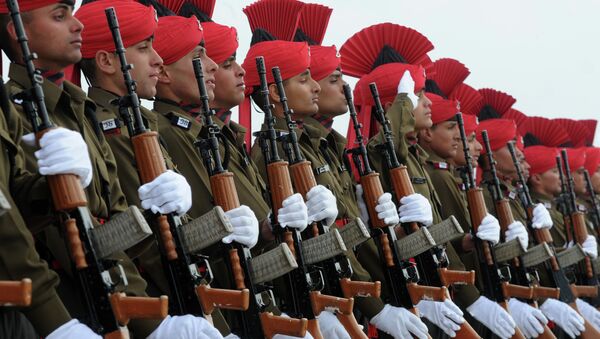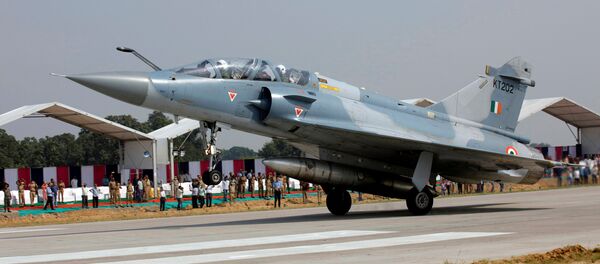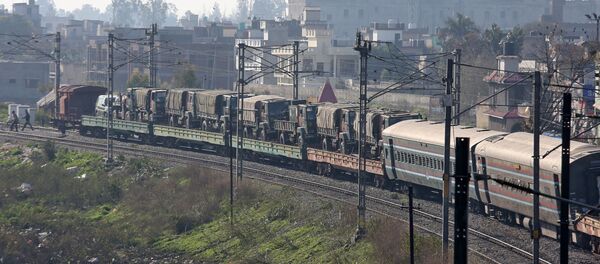"India has always wanted peace, and terror outfits are the biggest irritants in peace," Amrita Dhillon, a foreign affairs analyst and founding editor of the New Delhi-based Kootneeti magazine, told Sputnik. "If this is a Naya Pakistan [New Pakistan] as Prime Minister Imran Khan says then he needs to show this to the world by joining hands with India on its war against terrorism".
On 27 February, the Pakistani military reported that they had shot down two Indian fighter jets which violated the country's airspace over Kashmir. New Delhi specified that they had lost only one warplane, a MiG-21, which had been involved in a counter-terrorism mission and downed a Pakistani jet in an aerial incident. Pakistan denies that its air force suffered any losses.
Earlier, on 14 February, Jaish-e-Mohammad (JeM), a Pakistan-based Islamist terrorist group, attacked an Indian security convoy in the India-controlled Phulwama district of the Jammu and Kashmir state, killing 45 Indian paramilitary officers. The assault is the biggest terrorist act in India since 2008.
"First of all, India's war is on terror and not against Pakistani citizens or its army," Dhillon highlighted. "The recent escalation is a retaliatory action by India against Pakistan-based JeM terrorists who themselves claimed to carry out the attacks on Indian soil (Phulwama) killing 40 Indian soldiers. India secures all the rights to retaliate against an act of terrorism carried on Indian soil".
She admitted that "the Indian Air Force crossed the Line of Control (LoC) and even the international borders to Balakot which falls in Pakistani territory carrying out strikes against the JeM terror camps".
However, Dhillon voiced concerns over the fact that in contrast to the IAF that attacked the terrorist facilities on the ground in Pakistan, the PAF targeted Indian military bases.
She elaborated that in the eyes of Indians, Islamabad's strikes on Indian military assets looks nothing short of an effort to shield JeM.
According to the journalist, "this move escalates the already mounting tensions, as now the Indian Armed Forces may include Pakistani forces in their targets along with the terror groups based in their territory. This clearly is disastrous for the peace in South Asia".
She noted that since the Indo-Pakistani War of 1971 — one of the shortest in history — the Indian leadership has made attempts to "calm down situations through meeting and dialogues".
"India's only demand towards the Pakistani leadership before going for a peace negotiation is to take action against Pakistan-based terror groups instead of shielding them. It's their former President Musharraf who elaborated in one of his interviews how Pakistan created different terror groups since the creation of the Taliban and continues doing so," she said.
Meanwhile, on Thursday, Zee News reported that the Pakistan Air Force (PAF) entered Indian airspace on 28 February. The news came along with a report by Lt. Col. Devender Anand, the spokesman for the Indian Defence Ministry, that Pakistani servicemen shelled India's positions located across the so-called Line of Control (LoC) in Kashmir on Thursday morning.
However, later in the day, Pakistani Prime Minister Imran Khan told the parliament that Islamabad was going to release the Indian pilot, captured after the downing of an IAF MiG-21, the next day "as a peace gesture".
The views and opinions expressed by the speaker and the contributor do not necessarily reflect those of Sputnik.






